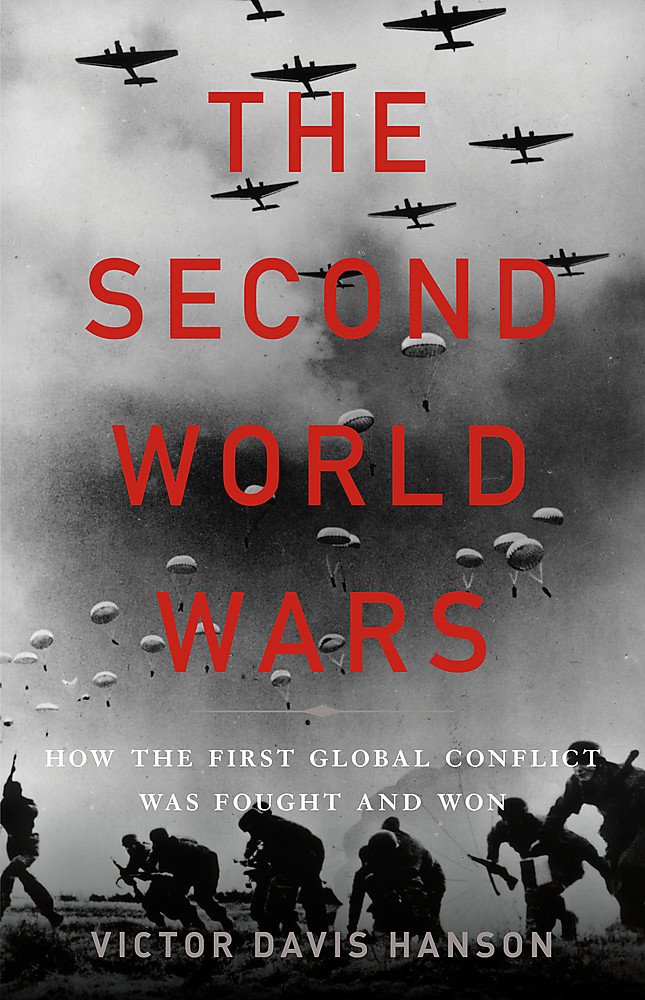 A few weeks back, I mentioned Victor Davis Hanson’s The Second World Wars at the end of my review of Stalin’s War. One of the local library branches has it and I have since read it.
A few weeks back, I mentioned Victor Davis Hanson’s The Second World Wars at the end of my review of Stalin’s War. One of the local library branches has it and I have since read it.
The Second World Wars is from 2017 and is 653 pages including the index. The subtitle is “How the first global conflict was fought and won.”
I have read a few other books by Hanson: A War Like No Other (his history of the Peloponnesian War), An Autumn of War (essays on 9-11 and War on Terror), Mexifornia, and his novel about Epaminondas, The End of Sparta. The Second World Wars is not a linear history. It is an examination of why the Allies won and the Axis did not.
This is not a book to read if you have little knowledge on World War 2. Again, John Keegan’s history is probably a good primer on the subject. Hanson divides the book into seven sections with each section divided into three to five chapters.
Ideas: War in a classical context; grievances, agendas, and methods; old, new, and strange alliances.
Air: air power revolution; From Poland to the Pacific; New Terrors from above.
Water: Ships and strategies; Atlantic to the Mediterranean; A Vast Ocean.
Earth: Primacy of infantry; soldiers and armies; Western and Eastern Wars for the continent; armies abroad; sieges.
Fire: Tanks and artillery.
People: Supreme command; warlords; workers; dead.
Ends: Why and what did the Allies win?
This is a big picture book that delves into details. Hanson deviates from some histories in that he thinks the strategic bombing campaign against Germany was critical in contrast to other books that viewed it as a waste of resources.
He repeatedly makes the point that Hitler, Mussolini, and Tojo/ Hirohito lacked strategic vision. He does go into a little that the Axis should have gone after Malta to secure supply lines to North Africa. I read How Hitler Could Have Won World War II by Bevin Alexander last year. Alexander had one counterfactual scenario of Italy and Germany taking Malta instead of Crete in early 1941. The Germans also establish a U-boat base at Dakar in Senegal to really hit British convoys. Meanwhile a main German-Italian effort pushes from Libya up to Iraq and Persia taking the oilfields that Hitler desperately needs. That also would have put Hitler in a better position for invasion of the Soviet Union. Both Hanson and Alexander make the case that for Hitler to win, don’t invade Russia.
Hanson does not think too much of German Gen. Walter Model who was something of a defensive genius preventing collapse at the Rzhev salient in 1942.
Hanson spends more time on the European portion of the war. I found the chapter on siege of special interest as he points out most sieges did not make any big difference to the course of wars. Stalingrad of course being the exception.
An interesting chapter was on casualties where he breaks down percentages of loss per nation. Poland and Yugoslavia took the biggest hits in terms of percentage loss.
This is an interesting book on WW2. Like I said, this is not for someone ignorant on the linear history. This is definitely a book of inside baseball on military history.
WW2 is fake and gay